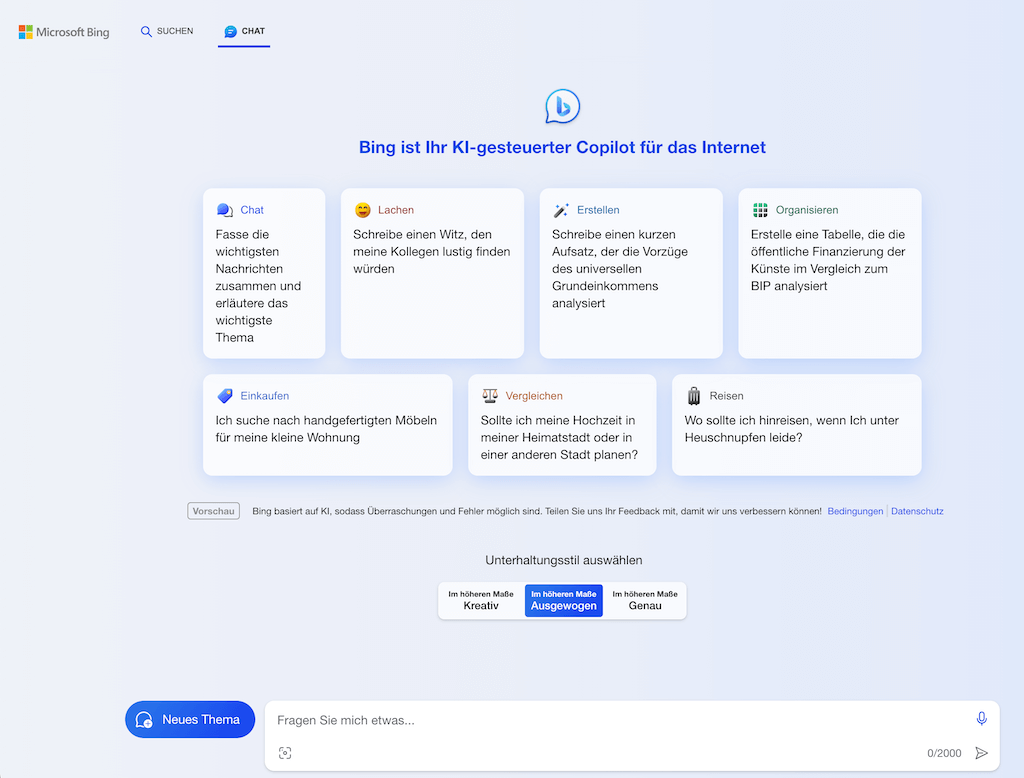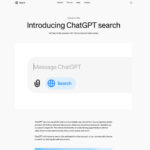OpenAI is expanding its sphere of influence: the AI pioneers are venturing into the domains of web search and web browsers – traditionally dominated by Google. This development could permanently change the tech market.
New horizons: An AI-supported web browser from OpenAI
OpenAI is working on the development of its own web browser that is deeply integrated into its leading AI technology ChatGPT. The goal is to provide a personalized and expressive browsing experience. The approach uses AI to not only deliver more accurate search results, but also to enable dialogic user interaction that challenges traditional search engines in their rigid structure.
To realize the vision of a holistic user-centric product, OpenAI is testing prototypes of its browser in collaboration with partners such as Conde Nast, Eventbrite, Redfin and other app and web developers. These strategic partnerships are intended to ensure that the browser-based search and interaction functions meet the actual needs of different target groups.
Challenge to Google’s dominance
OpenAI’s move is a clearly calculated move to not only challenge Google’s 82% market share in the search engine space, but also to undermine the Chrome browser’s sphere of influence, which accounts for around 65% of its user base worldwide. At the same time, the current antitrust lawsuit filed by the US Department of Justice against Google is playing a central role. A potential split of Google’s services could put OpenAI in a highly strategic position to capture market share.
Impact on the technology landscape
However, OpenAI’s ambitions extend beyond browser development. With the launch of SearchGPT, a tool that processes search queries with AI-powered precision, OpenAI is directly targeting the quintillion-dollar web search market. This approach could change the standard of how users gather information on the web by enabling content-rich and context-aware interactions rather than mere keywords.
Another key factor is OpenAI’s experimentation with integrating its AI technologies into other ecosystems, including Apple’s existing AI solutions. Samsung – a long-standing Google partner – is also reported to be in potential discussions about similar collaborations. Should OpenAI conquer Samsung’s ecosystem, this would be a significant step against Google’s supremacy.
New dimensions for technology competition
The introduction of an AI-supported browser and an improved search engine by OpenAI could set new expectations in terms of user-friendliness, personalization and efficiency and put existing business models to the test. At the same time, this poses challenges from a regulatory perspective, particularly with regard to data protection aspects and the monopoly discourse in the technology sector.
From a strategic perspective, OpenAI shows how AI can do much more than simply generate text or images. The integration of these technologies into everyday application tools such as browsers could profoundly change user behavior and redefine the innovation landscape in the long term.
The most important facts about the update
- OpenAI plans to launch an AI-powered web browser that integrates ChatGPT.
- The goal is a conversational and user-centered browsing and search experience.
- Partnerships with platforms such as Conde Nast, Redfin and Eventbrite ensure demand orientation.
- Launch of the SearchGPT search engine as the first foray into the search market.
- Antitrust proceedings against Google create a potential gap in the market for innovation and competition.
- OpenAI works on comprehensive technology integration in partnerships with Apple and possibly Samsung.
Sources: The Information







